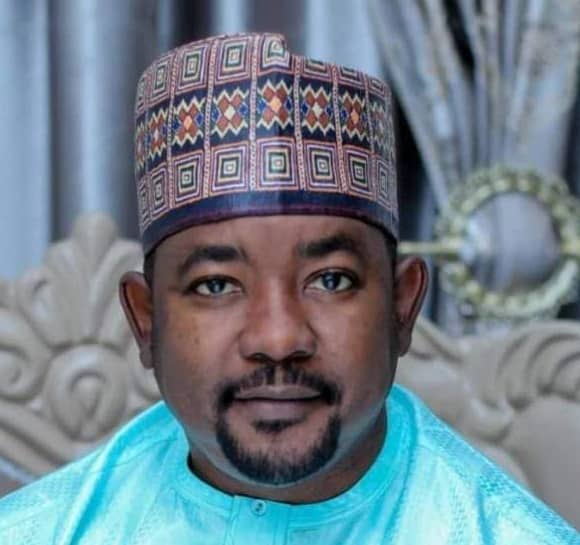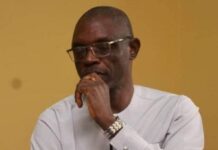Oronsaye report: the good and the blues.
By Tahir Ibrahim Tahir Talban Bauchi.
There is not an iota of doubt that the Federal Government is over bloated to put it lightly. Quite a number of parastatals not only bear about the same nomenclature, but share practically the same missions and have not so dis-similar functions. The level of duplicity in the aims and objectives of the agencies sometimes makes you wonder, if government is aware of the name and functions of a particular agency, as it creates and christens yet another similar government body. More than half of those agencies were created under democratically elected governments, and the government of the day usually pandered to members of the National Assembly, political parties and other political groups, to gain political advantage from them. This continued to increase government’s recurrent expenditure. This is not only in the payments of salaries and wages, but in very wasteful and corruptive spending, with budgets of these agencies showing unprecedented repetition of so many line items, over so many years. The National Assembly once queried a particular agency over spending on the development of a car park that kept recurring for over 6 years!
In an effort to reduce the cost of governance, several reform committees have been constituted since the beginning of the 4th Republic, starting with the Ahmed Joda panel of 1999, under the Obasanjo Administration. In 2011, The President Goodluck Jonathan Administration also constituted the Steve Oronsaye Committee on the Rationalisation of Federal Government Parastatals and Agencies. The Buhari Administration also constituted the Amal Pepple Committee to review the Oronsaye report, and to cover the 2012 to 2021 period, which wasn’t under the review of the Oronsaye report. Another Committee was constituted under the Chairmanship of Ebele Okeke, to produce a white paper on the two reports. But just like the White Papers under President OBJ and President Goodluck went unattended to, the Buhari Administration also did not implement the reports, nor the recommendations of the White paper it produced.
Read Also:
13 years after, the President Tinubu Administration is ready to implement the recommendations of the Steve Oronsaye report, to cut down on bureaucratic costs, and it envisages that it will be saving close to 1 trillion Naira from the exercise. The Special Adviser to the President on Policy Co-ordination and Implementation, Hadiza Bala Usman made this announcement on the 26th of February, 2024, after the Federal Executive Council meeting. The President constituted a Committee to carry out these reforms, and they have been given a time frame of 12 weeks to carry out the mergers of the affected agencies and institutions. The ICPC and the EFCC will be under one roof as one Anti-corruption agency. BPE would be merged with the Infrastructure Concession and Regulatory Commission, ICRC. National Commission for Museums would be merged with National Gallery of Arts. NACA will be merged with the National Agency for Disease Control. The Oil and Gas sector too will be having a number of regulatory agencies coming together under one roof. In the education sector, Nomadic Education Commission would be merged with the Commission for Mass Literacy and Adult Education. Salaries and Wages Commission is to be merged with the Revenue Mobilisation and Fiscal Allocation Commission. Border Communities Development Agency to become under the National Boundaries Commission. NEMA and Refugees Commission to become the National Emergency and Refugees Management Commission. The list is very exhaustive with the Federal Government having close to 600 agencies and parastatals.
Cutting on cost of governance is what everyone has been asking for, including most civil society organisations. This has been for decades. It is now here. What the President Tinubu Administration is doing will no doubt cut costs, a trillion or more. But however, does it imply massive rentrenchments from the civil service? Will thousands of Nigerians be losing their jobs? Would it be adding to the millions of unemployed Nigerians? Certainly a bloat in unemployment figures cannot be deemed as a progressive development. What measures are in place to cushion or alleviate the repercussions of the mergers, if thousands of civil servants are to lose their jobs? We have seen the implementation of the removal of fuel subsidy from government spending, but have not seen a corresponding proactive remedy to the effects and sufferings that the policy has caused.
I may be wrong, but the mergers will see to a lot of Nigerians joining the unemployed population. The subsidy removal and the floatation of the naira have had very debilitating effects on the citizenry. Understandably, they are reformative and necessary. However, the populace are grappling with the monumental inflation that is making feeding unaffordable. The Finance Minister has said that only 5% of Nigerians have 500,000 naira in their accounts. Unless I am wrong about the mergers that are about to take place, the percentage as stated by the Finance Minister is about to get much lower. Unless there are mechanisms put in place, better than the ones put in place for the removal of subsidy, the economics of the populace is bound to be in more shambles and the discomfort will perhaps double. We may be heading towards putting the cart before the horse, as we seek more reforms from positions that have held us back as a nation. As the Oronsaye report is being implemented, there must be measures in place to cushion the effects of such a reform, that would be affecting thousands, and inadvertently millions of Nigerians. The populace are suffocating from the two most recent reforms as it is. There’s a proverb that says, “putting a broken leg together is painful but considered a necessary pain”. I am not so sure we are familiar with the pain of trying to ‘repair’ two broken legs at the same time! One too many reforms all at the same time might be a tough task and a tough ask from Nigerians.
Tahir is Talban Bauchi.













